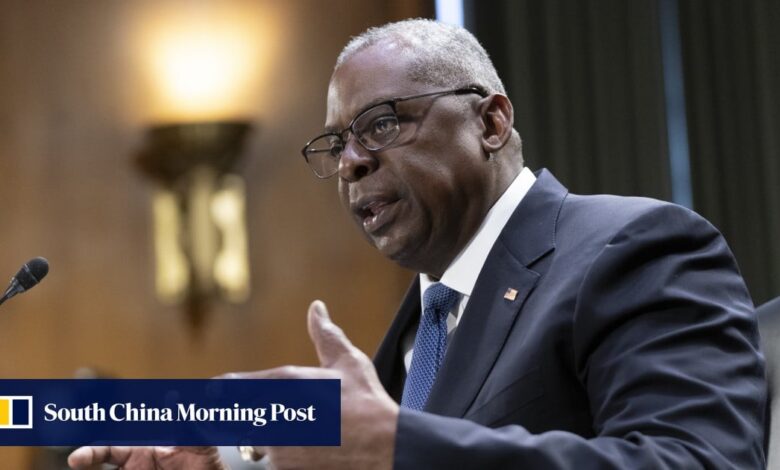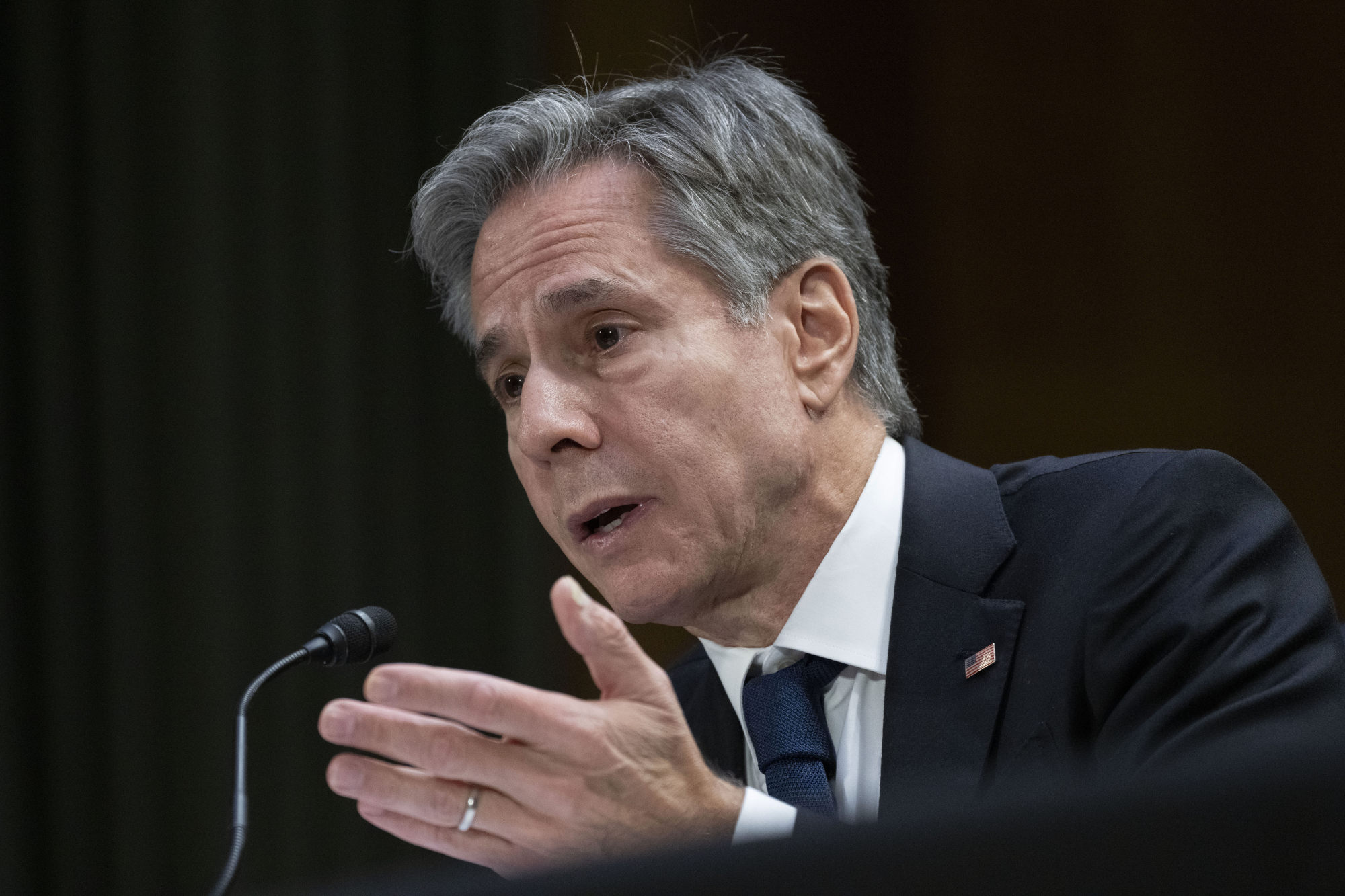Added US funding essential for Ukraine, Israel and countering China, White House officials tell Congress

China is closely watching how much endurance and commitment Washington has in defending its democratic allies Ukraine and Israel, with an eye to future aggression in the Indo-Pacific, top White House officials told the US Congress on Tuesday.
The Senate Appropriations Committee hearing came amid growing divisions in an already deeply divided Congress. At issue was a contested White House request for US$106 billion in supplemental funding to aid Ukraine and Israel in their military and humanitarian struggles, contain China and strengthen US border security.
“What happens in Ukraine, what happens in the Middle East, also matters for the Indo-Pacific. Beyond Europe, we know that our allies, as well as our adversaries, as well as our competitors, are watching that conflict. They’re watching our response,” said Secretary of State Antony Blinken, underscoring the importance of regional freedom of navigation. “So the funding request … is vital to secure a free and open Indo-Pacific in the face of mounting challenges in that region.”
In the background of Tuesday’s hearing was the recent ascension of US House Speaker Mike Johnson, a Republican from Louisiana, who wants to provide stopgap financing only for Israel while shelving the other White House foreign policy funding priorities. He is also demanding cuts elsewhere in return for supporting one of America’s closest allies.
Critics say Johnson’s efforts threaten to hand a victory to Russian President Vladimir Putin in Ukraine, undercut US deterrence involving China and dent broader US foreign policy objectives.
“China would like to see the United States be unsuccessful,” US Defence Secretary Lloyd Austin testified. “They would like to see Russia continue to challenge us and keep us focused on that area so that we have less time, energy and resources” in the Indo-Pacific.
Beijing has walked a fine line since Moscow’s February 2022 invasion of Ukraine, supporting its “no limit” Russian partner diplomatically even as it has stopped short of providing military aid, wary that Europe and Asia could impose secondary sanctions.
In the aftermath of the October 7 attack on Israel by Hamas – which rules the densely populated Gaza Strip – Beijing has joined Moscow in vetoing a US-backed UN resolution condemning Hamas, even as it calls for an end to the fighting. Washington, which considers Hamas a terrorist organisation, has criticised China’s move.
US pushes UN to back Israel self-defence, demands Iran stop arms to Hamas
US pushes UN to back Israel self-defence, demands Iran stop arms to Hamas
Blinken said the White House bid to bolster ties with allies and partners – condemned by Beijing as evidence of Cold War thinking – has been highly effective but could be undercut if the proposed funding bill fails.
“We now stand at a moment where many are again making the bet that we’re too divided or too distracted to stay the course,” he said. “That’s what’s at stake.”
In recent years, Beijing and Moscow have touted the benefits of authoritarian governance, which they say include quick decision-making, personal safety and top-down order.
Officials in US President Joe Biden’s administration on Wednesday promoted democracy’s resiliency even as some of its more messy features played out, including the fight over military funding and repeated interruptions as pro-Palestinian protesters were ushered out of the hearing room.

“I also hear very much the passions expressed in this room and outside this room” on the need for humanitarian aid to Gaza, Blinken said as the committee chair called for order.
Some 70 per cent of the US$106 billion in the stopgap funding bill would go to Ukraine and Israel, but it also included several China-related spending provisions.
These include approximately US$3 billion for Aukus, the Australia-United Kingdom-US military alliance, to bolster the allies’ nuclear submarine fleet and advanced technology capability in the Indo-Pacific; and US$2 billion for US-led multilateral banks “to provide alternatives to China’s coercive financing for our partners in the developing world”, Blinken said.
Aukus nuclear submarine plan unveiled by US, UK, Australia leaders
Aukus nuclear submarine plan unveiled by US, UK, Australia leaders
Also included are US$3 billion to strengthen the US military industrial system and US$2 billion to counter Beijing’s influence in developing countries.
Analysts say some version of the spending bill will pass eventually, although it will be a slog as Republican extremists in the House repeatedly threaten to shut down the government.
“Investors should expect a lot of political theatre for the next three weeks as Speaker Johnson asserts his authority,” said Henrietta Treyz, director of economic policy research at Veda Partners consultancy. “The added wrinkle of Republicans barely controlling the House makes relying on regular order a quickly evaporating luxury.”
Austin said China and Russia have grown closer in their bid to counter Western democracies. “In the Indo-Pacific, we see a China that’s increasingly aggressive,” he added. “I think that is certainly China’s goal, to be the dominant player in the Indo-Pacific.”





